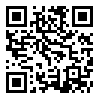Volume 6, Issue 1 (3-2025)
2025, 6(1): 1-20 |
Back to browse issues page
Ethics code: 11111111111111111111
Download citation:
BibTeX | RIS | EndNote | Medlars | ProCite | Reference Manager | RefWorks
Send citation to:



BibTeX | RIS | EndNote | Medlars | ProCite | Reference Manager | RefWorks
Send citation to:
Forozanmehr M, Aliesmaeili A, Ghasemzadeh K. (2025). Presenting a Technological Learning Model in Iranian Schools Focused on the Emerging Technology of Metaverse. Journal of Childhood Health and Education. 6(1), 1-20. doi:10.32592/jeche.6.1.1
URL: http://jeche.ir/article-1-276-en.html
URL: http://jeche.ir/article-1-276-en.html
1- Ph.D. student of Educational Management, Department of Educational Sciences, Babol Branch, Islamic Azad University, Babol, Iran
2- Assistant Professor, Department of Educational Sciences, Babol Branch, Islamic Azad University, Babol, Iran
2- Assistant Professor, Department of Educational Sciences, Babol Branch, Islamic Azad University, Babol, Iran
Abstract: (2759 Views)
Background and Aim: The present study aimed to develop a model for technology-enhanced learning, emphasizing the emerging metaverse technology, within Iranian schools. Research Methods: Employing a qualitative research design, the study targeted a population of educational science and information technology experts. Data were collected through in-depth focus group research methods and analyzed using thematic analysis and grounded theory methodology. Results: The findings present a systematic theoretical model identifying causal, strategic, contextual, intervening, and consequential factors. Causal factors include the transformation of teaching and learning processes and the optimization of teacher and administrator performance. Strategic factors encompass the digital revolution in education, innovation, and educational management and instruction advancements. Contextual factors involve educational development, empowerment, evaluation, and improvement of academic progress. Intervening factors include teacher skills development, training, and establishing interactive and technological learning platforms. Finally, consequential factors comprise the development and reinforcement of skills and the improvement and optimization of processes. Discussions: The study concludes that the implementation of a technology-enhanced learning model, particularly one emphasizing emerging technologies like the metaverse, can contribute to the advancement and development of the national education system. It is recommended that the proposed model be piloted and, if proven effective and efficient, be generalized for broader implementation.
Type of Study: Research |
Subject:
Special
Received: 2024/09/28 | Accepted: 2025/03/21 | Published: 2025/03/21
Received: 2024/09/28 | Accepted: 2025/03/21 | Published: 2025/03/21
Extended Abstract [HTML 30 KB] (24 Download)
Send email to the article author
| Rights and permissions | |
 |
This work is licensed under a Creative Commons Attribution-NonCommercial 4.0 International License. |




